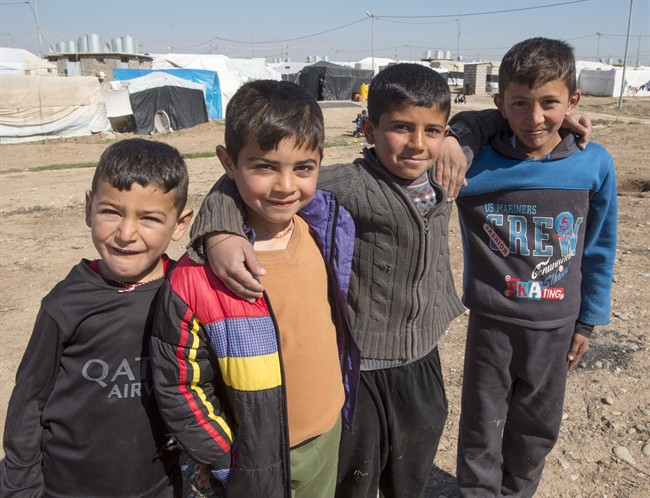Donor governments have been criticized for shifting aid money from poor countries and spending more on dealing with refugees at home after overall aid spending hit a record high in 2016.

Official development assistance (ODA) reached a record $142.6 billion in 2016, a rise of 8.9 per cent in real terms from 2015, according to Organisation for Economic Co-operation and Development (OECD) figures released on Tuesday.
But of that total, $15.4 billion – or around 10 per cent – was spent on hosting and processing migrants in rich countries, just over a quarter more than what was spent in 2015.
The Paris-based think tank said donor countries should use their aid budget to prioritize development programs in poor nations instead of spending it on refugees at home.
WATCH: ‘Greatest’ thing US can do for refugees is de-escalate Syrian crisis: White House

“Much of this latest increase is in humanitarian aid and spending on refugees in donor countries,” said Charlotte Petri Gornitzka, head of OCED’s Development Assistance Committee, which assesses aid spending.
“While both of these are highly important, we must ensure that we also maintain financing of long-term development programs, especially in the least developed nations.”
Several international charities have also expressed concern over the new trend in spending.
Oxfam International’s deputy director of advocacy, Natalia Alonso, said while rich countries are obligated to host migrants and refugees fleeing conflicts, it should not be considered aid and development work.
“Rich countries are misleading the public. They are rebranding as ‘aid’ the money they’re spending to process asylum claims or to pay off others to clamp down on migration,” she said in a statement.
Advocacy group ONE, which campaigns to fight extreme poverty, said the need to spend money in development nations has “never been greater.”
WATCH: Seeking Asylum: Winnipeg food bank helping hundreds of hungry refugees

“The refugee crisis means that too much aid is being spent in Europe, not in the world’s poorest countries, and does little to help end extreme poverty,” ONE told the Thomson Reuters Foundation in a statement.
“Now is the time for donor countries to focus on reaching the world’s most vulnerable people, not on inflating their aid figures.”
The OECD said even if refugee costs were excluded, net ODA in 2016 still grew by 7.1 per cent in real terms.
Of the 29 members of the OECD’s Development Assistance Committee, the United States remained the largest donor in 2016 giving $33.6 billion in aid, followed by Germany with $24.7 billion, Britain, Japan and France.
Only six donors – Denmark, Luxembourg, Germany, Norway, Sweden and Britain – met or exceeded the United Nations’ target of spending 0.7 percent of national income on development aid.



Comments